QOTD: Is Your Driveway a Champion of Diversity?

People and cultures, like the arts, traditions and cuisine born of those cultures, come in all flavors, and so do cars. The great thing about global trade is that we have choice in nearly everything we buy. Few, if any, people are forced to purchase a product because no alternatives built by rival companies exist.
And, because we’re not living under the thumb of an oppressive apparatus that demands us proles buy dismal crapboxes from a sole state-owned factory, our driveway diversity is off the charts. Maybe yours tops them all.
Sure, there’s some notable absences. All Chinese-brand cars, for instance. Brands like Seat and Skoda and Holden and Opel and Daihatsu and the PSA Group lineup (for now), Hindustan, and vehicles built at AvtoVAZ factories in Russia. There’s plenty of vehicular nationalities we can’t get our hands on.
Old rarities sometimes float across the oceans, and a person’s advanced age (or globe-trotting career) can mean a now-unattainable brand once passed into their ownership, either here or abroad.
Sadly, your author can’t claim a diverse ownership history of various auto nationalities. Nope, just two countries: America and Japan. No Germans, no Italians, no Swedes (almost, though), no Koreans, and no Brits. My father’s father only owned two nationalities in his life: American and British, though a Renault Dauphine almost fell into his lap in the 1960s. My mom’s father could claim to have owned British, American, and Canadian — specifically, the Chevy-ripoff Acadian brand.
My father was very much the same, owning American, Japanese, and a lone Vauxhall Firenza. There was almost a Russian model once, but that bargain-basement Lada romance was not to be. Same goes for the VW Beetle he left on the lot following a near rollover during a test drive. Indeed, no one in my immediate family has ever owned a German car.
Here’s where you come in. Can you claim more vehicular diversity than anyone in your family or circle of friends? We’re not talking individuals brands or bodystyles, just country of origin (in the headquarters sense, not the production side of things). What’s your tally, B&B?
[Images: General Motors, Citroen, Kia]

More by Steph Willems
Latest Car Reviews
Read moreLatest Product Reviews
Read moreRecent Comments
- Ltcmgm78 Just what we need to do: add more EVs that require a charging station! We own a Volt. We charge at home. We bought the Volt off-lease. We're retired and can do all our daily errands without burning any gasoline. For us this works, but we no longer have a work commute.
- Michael S6 Given the choice between the Hornet R/T and the Alfa, I'd pick an Uber.
- Michael S6 Nissan seems to be doing well at the low end of the market with their small cars and cuv. Competitiveness evaporates as you move up to larger size cars and suvs.
- Cprescott As long as they infest their products with CVT's, there is no reason to buy their products. Nissan's execution of CVT's is lackluster on a good day - not dependable and bad in experience of use. The brand has become like Mitsubishi - will sell to anyone with a pulse to get financed.
- Lorenzo I'd like to believe, I want to believe, having had good FoMoCo vehicles - my aunt's old 1956 Fairlane, 1963 Falcon, 1968 Montego - but if Jim Farley is saying it, I can't believe it. It's been said that he goes with whatever the last person he talked to suggested. That's not the kind of guy you want running a $180 billion dollar company.






















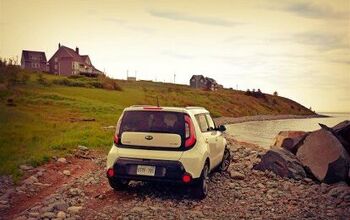
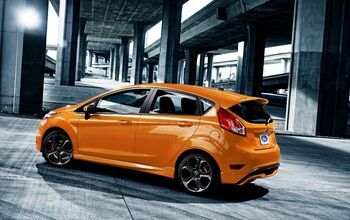
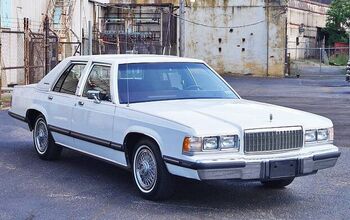





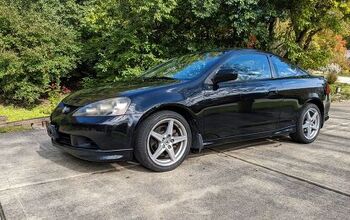




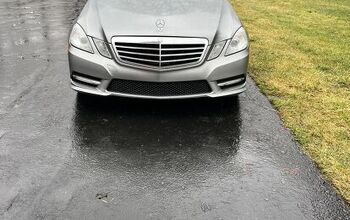
Comments
Join the conversation
Let's see... 1. '87 Buick Skyhawk 2. '89 Subaru RX 3. '93 Honda Accord 4. '00 Acura Integra 5. '94 Mazda Miata 6. '95 Mazda Miata 7. '12 Subaru WRX 8. '72 VW Beetle 9. '75 Porsche 914 10. '68 Porsche 912 (project) 11. '69 Porsche 912 (project) 12. '84 Porsche 911 Pretty much everything was made either in Japan or Germany. 2 exceptions: Accord and Buick were both made in US. So not very diverse. But then again I refuse to touch modern German and American cars so only buyer newer Japanese. But for old cars for some reason I like German, flat-engined and aircooled. Go figure.
I've owned 3 vehicles built in Japan, 2 built in Mexico, 1 built in Korea, 3 built in Canada (I believe) and the rest built in the USA. Currently, my driveway is home to two Mazdas, 1 built in Mexico and the other straight from the land of the rising sun.